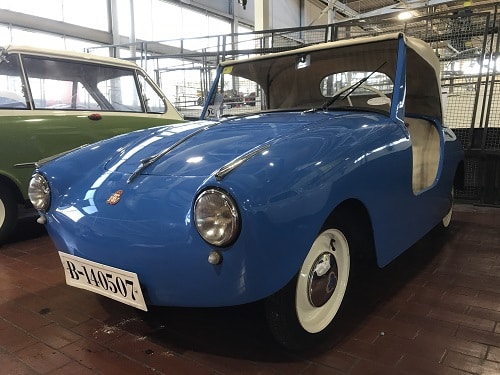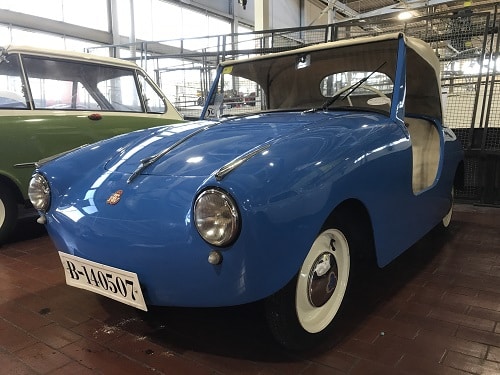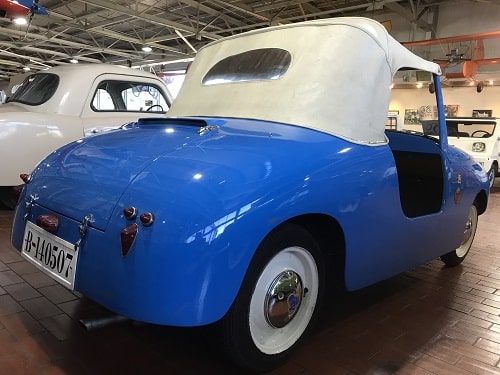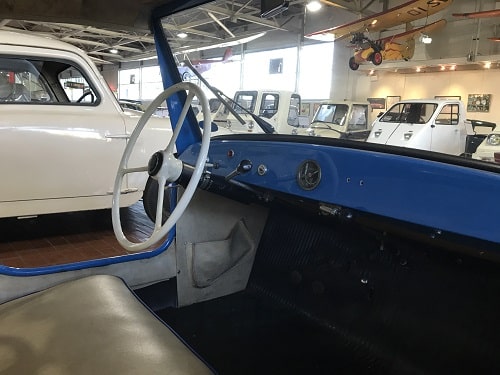
PTV- 1956

PTV was a line of cars produced by Automóviles Utilitarios S.A., a Spanish company based near Barcelona. While it was much closer to being a “real” car than the (French) Voisin-designed Biscuter, it always played second fiddle as far as sales were concerned. Chrome trim, optional real doors, larger wheels, and (typically) two-tone paint were not enough to entice buyers away from the Zapatilla, or little peasant slipper (Biscuter) so loved by the Spanish. It was truly Spanish, both in design and materials, which was a well-deserved source of pride.
Two brothers, Guillem and Antonio Tachó, had developed small cars in the early 1950s, but they were not terribly successful. Joining with Mauricio Perramón and later José Vila in 1956 (Perramón, Tachó, Vila = PTV) and forming Automóviles Utilitarios S.A., the PTV 250 was their first successful car. The pretty little 250cc 2-seater offered decent performance and a bit more luxury than its competition. Later versions offered a 400cc engine and higher top speed, at the expense of more fuel consumption. When Fiat formed SEAT in Spain and introduced a de-contented Fiat 600 at very nearly the same price as the Biscuter and PTV, both companies quickly succumbed. The SEAT 600 offered four seats, real doors with wind-up windows, a four-cylinder engine and a hardtop – a very attractive package for similar cost.
PTV/Automóviles Utilitarios S.A. reinvented themselves into AUSA Center SA, a multi-national industrial equipment and forklift producer, still active today.
Specifications:
Manufacturer: Automóviles Utilitarios S.A.
Country of Origin: Spain
Drivetrain Configuration: Rear-engine, rear-wheel drive
Engine: Air-cooled two-stroke single, 247cc, 13hp
Transmission: 3-speed manual plus reverse
Top Speed: 45mph
Years of Production: 1956-1961
Number Produced: Approx. 1100
Cost: Without doors – 44.500 Pesetas (approx. $1125 USD)
With doors – 55.000 Pesetas (approx. $1385 USD)


